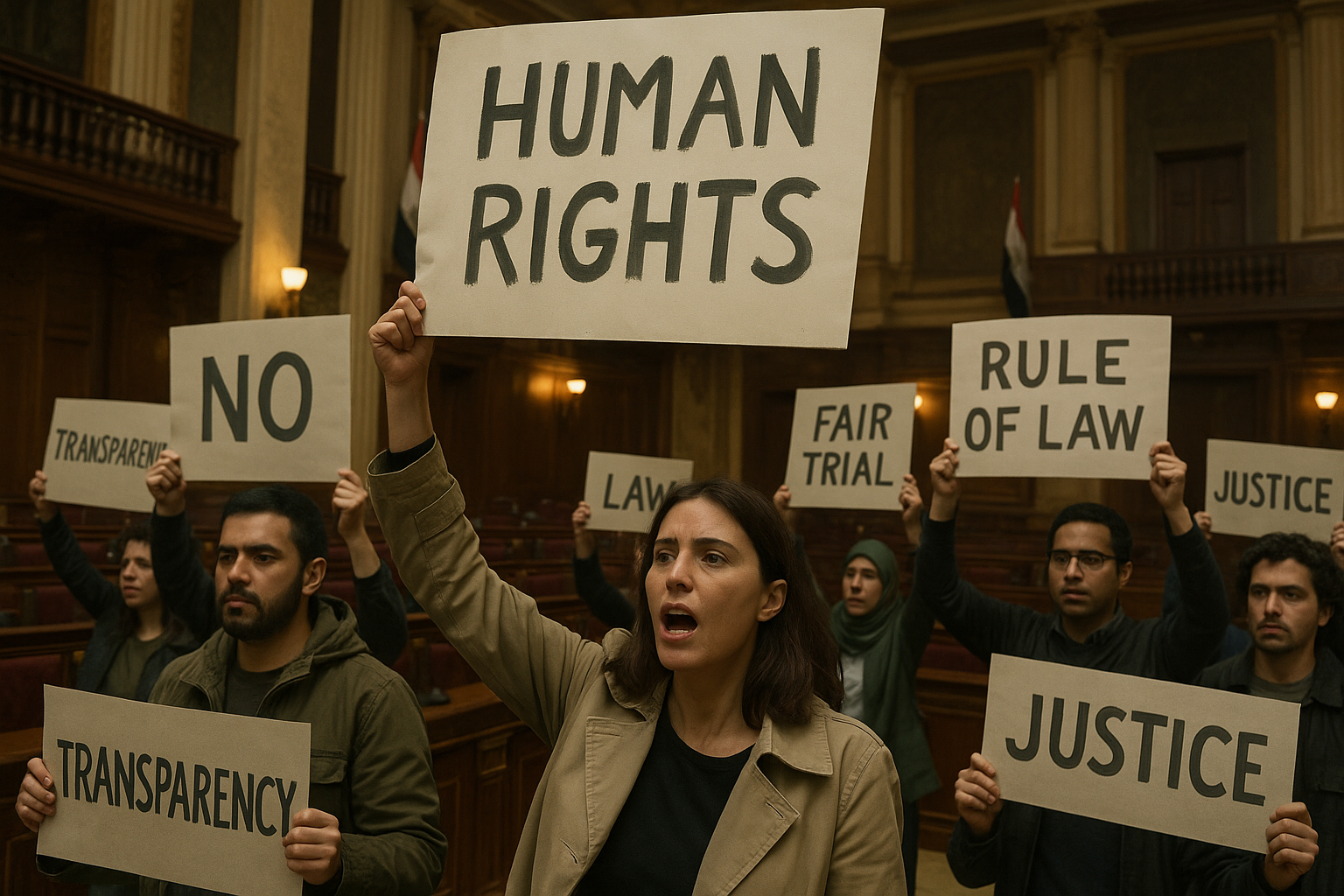Egypt’s New Criminal Procedure Code Raises Human Rights Concerns Amid Opaque Amendments
The new code is set to expand prosecutorial powers, particularly in areas of pre-trial detention, interception of private communications, and the imposition of travel bans without sufficient judicial oversight.

- Country:
- Egypt Arab Rep
Egypt is on the cusp of significant legal reform as its newly revised Code of Criminal Procedure awaits final approval from the President, following recent endorsement by the House of Representatives. While this legislation is being framed as a modernization of the country’s judicial framework, domestic and international observers have voiced serious concerns over several provisions that could have far-reaching consequences for civil liberties and the rule of law in Egypt.
Broad Discretionary Powers to Prosecutors
At the heart of the criticism is the wide discretionary authority that the proposed law would confer upon public prosecutors. The new code is set to expand prosecutorial powers, particularly in areas of pre-trial detention, interception of private communications, and the imposition of travel bans without sufficient judicial oversight. Human rights advocates warn that these provisions could result in unchecked prosecutorial practices, undermining the presumption of innocence and fair trial guarantees enshrined in international human rights instruments.
The expanded pre-trial detention powers, in particular, risk entrenching a system in which individuals may be held for prolonged periods without adequate evidence or timely access to judicial review. This would violate Article 9 of the International Covenant on Civil and Political Rights (ICCPR), to which Egypt is a party, which protects individuals against arbitrary arrest or detention.
Curtailment of Legal Representation and Accountability
The new legislation also raises red flags regarding access to effective legal representation. It reportedly limits the role and presence of defense attorneys during key phases of the pre-trial process. Legal experts and bar associations have criticized the bill for weakening procedural safeguards that ensure fairness and due process.
Furthermore, the draft law appears to lack clear provisions that enforce accountability for misconduct by law enforcement officers and other public officials. Without robust mechanisms to investigate and penalize abuses of power, the legal system risks becoming an instrument of repression rather than justice.
Lack of Transparency in Legislative Process
Adding to the controversy, last-minute amendments were reportedly introduced to the draft law before it was sent to the President. These amendments have not been disclosed publicly, sparking accusations of legislative opacity and diminishing public trust in the lawmaking process. Transparency and inclusiveness are essential to democratic governance and law reform, and the absence of both has raised serious alarms among civil society organizations, legal scholars, and international observers.
The secrecy surrounding the final text of the law has created a climate of uncertainty about its implications. Many fear that without adequate public scrutiny, the amendments could introduce further restrictive measures that would erode fundamental freedoms.
A Call for Presidential Scrutiny
In light of these issues, a broad coalition of human rights organizations, legal professionals, and concerned citizens is urging the President of Egypt to withhold assent until a thorough review is conducted. They call on the President to consider the compatibility of the draft legislation with Egypt’s obligations under international human rights law, including the ICCPR and the African Charter on Human and Peoples' Rights.
Observers emphasize that any overhaul of the criminal justice system must prioritize accountability, transparency, and the protection of individual rights. Instead of expanding the coercive powers of the state, legal reform should aim to restore public confidence in the justice system, uphold due process, and ensure fair treatment for all individuals, regardless of their political beliefs or affiliations.
International Watchdogs Weigh In
International watchdogs, including Amnesty International and Human Rights Watch, have echoed these concerns. They warn that unless the problematic provisions are addressed, the new code could legitimize practices that contravene Egypt’s constitutional and international commitments.
These organizations have also emphasized the importance of aligning national legal frameworks with the United Nations Basic Principles on the Role of Lawyers and the Mandela Rules, which provide guidelines on the treatment of detainees.
As Egypt stands at a legal crossroads, the decisions made in the coming days will significantly shape the country’s human rights trajectory. The new Code of Criminal Procedure, in its current opaque and problematic form, poses a risk to due process and civil liberties. The call is clear: the President must weigh the potential ramifications carefully and ensure that Egypt’s legal reforms strengthen, rather than weaken, the foundations of justice.










